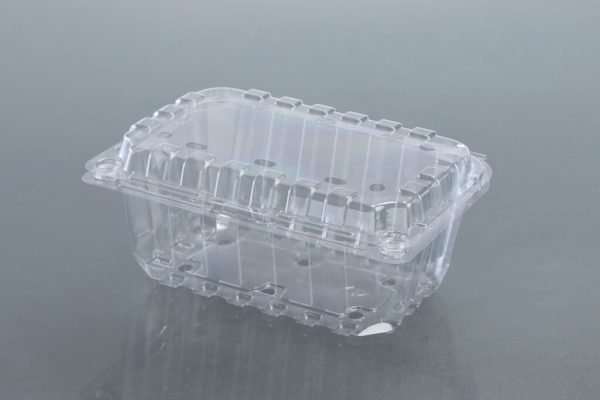How Recycled Plastic Punnets Are Revolutionizing Sustainable Packaging

With the world becoming greener in terms of packaging, plastic punnets, particularly those manufactured from recycled content, are becoming the new guiding light in the race towards environmentally friendly packaging. As increasing pressure is placed on manufacturers and retailers to reduce their environmental footprint, the use of plastic punnets in packaging is steadily gaining pace. Not only are such containers convenient to transport and store things, but they also contribute to a circular economy.
Why plastic punnets are gaining ground regarding sustainable packaging.
To be part of the initial trends in eco-friendly packaging, plastic punnets have become a recommendation as a medium that keeps up with the needs of boosting the sustainability of packaging materials. These punnets have been traditionally used to pack fresh fruits, vegetables, and bakery products, but of late, they have become a statement of conscious manufacturing as well.
Manufacturers are now utilizing plastic punnets made from post-consumer recycled (PCR) plastic by manufacturers and suppliers, drastically cutting the use of virgin plastic and natural resources. The Ellen MacArthur Foundation has identified the increase of recycled content in the package to be one of the foundations of achieving global sustainability goals. This is the area where the plastic punnets have real benefits.
Advantages of Recycled Plastic Punnets
1 . Eco-Friendly Footprint:
Recycled plastic punnets significantly lower carbon emissions compared to manufacturing virgin plastics. According to a paper published by Science Advances, plastic reuse and recycling would reduce emissions by more than 40 percent by 2050.
2 . Less Landfill Trash
Recycled materials also contribute to making plastic punnets, and instead of being put into landfills and later into oceans, waste achieves a second life.
3 . Longevity and Defenses:
Punnets made of plastic are very protective to perishers, hence minimizing food wastage due to breakages during transportation and storage.
4 . Visibility and Beauty:
Transparent punnets allow consumers to view the contents, enhancing trust and influencing purchase decisions. Concerns About Using Plastic.
5 . Customizability:
Plastic punnets today can be shaped in several sizes and configurations and have become useful to almost any industry out there, such as agriculture and FMCG.
Industry Trends Driving the Shift Toward Plastic Punnets
Coinciding with the emergence of eco-conscious consumerism has been the rise in importance of the issue of the packaging practices of industries. Global retailers like Tesco and Carrefour insist on using more recycled content in their plastic packaging. Such a mass movement toward the use of alternative materials shows how significant scalable, sustainable options such as plastic punnets are.
This transition is most applicable in India. As more people become concerned about the environment and the use of plastics is regulated even more, recycled plastic punnets find their way into more food packaging, horticulture, and even the drug industries. Consumer satisfaction and corporate responsibility are competitive priorities when companies are seeking business partners, and as such, companies that want to remain leaders in compliance need to source manufacturers with a history of sustainability.
JB POLYPACK PVT PLC: Going Green with Green Solutions
Some of the leaders in the field of sustainable packaging are JB POLYPACK PVT. LTD, a company that has a reputation for being environmentally friendly in its innovations. The company specializes in supplying high-quality PET Punnets that have been adapted and incorporated with recyclable materials (e.g., PET) as well as other resources that are more environmentally sustainable to produce robust and reusable packaging materials. Their practice conforms to the world’s best practice as they provide packages that are environmentally friendly and commercially viable to their clients.
Combining high-tech manufacturing procedures and rigorous quality checks, JB POLYPACK claims to the fact that every plastic punnet serves its purpose without adding to the degradation of the environment. This is what qualifies them to be a first choice in terms of the businesses that want to connect profits to purpose.
Addressing Concerns About Using Plastic
Many believe recycled plastic contradicts the goal of sustainability, but continue to use it. The secret is to be responsible in sourcing and the recyclability of the after-use. It is important to remember that when a sufficient quantity of recycled plastic punnets reaches the process of recycling, they can be used repeatedly, and this way, it would form a closed loop. Compared to disposable variants, these punnets do not compromise on long-term sustainability objectives.
In addition, a high number of plastic punnets are now offered in recyclable mono-material formats, and this will be easier to recycle compared to composite packs.
Future Prospection: What is the Future of Plastic Punnets in the circular economy?
With sustainability no longer a prime trend, but a must-have, plastic punnets will also continue to be a very useful and potent tool in the hands of brands that want to lessen their impact on the environment. Recent advancements are likely to strengthen the attractiveness and capabilities of plastic punnets, including biodegradable lining, AI-based optimization of design and recycling logistics, and so on.
Consumer education will also be vital in this aspect. Once customers realize their role in cleaning up the environment by deciding on which packaged goods will make people healthier, the shift toward ecologically-friendly packaging, such as plastic punnets, will become even faster.
Final Thoughts
There is a shift in the packaging scenario, and recycled plastic punnets are the way to create a greener and more ecological environment. To those enterprises that need to be efficient, aesthetically pleasing, and environmentally friendly, the punnets provide a comfortable response to the current requirements.
There are companies such as JB POLYPACK PVT. LTD is demonstrating that with an appropriate purpose and innovation, he or she can be the one to make packaging both eco-friendly and high-performance. Due to the change in demands and the level of adaptability exhibited by industries, the significance of plastic punnets in establishing a greener economy is nothing but imminent.